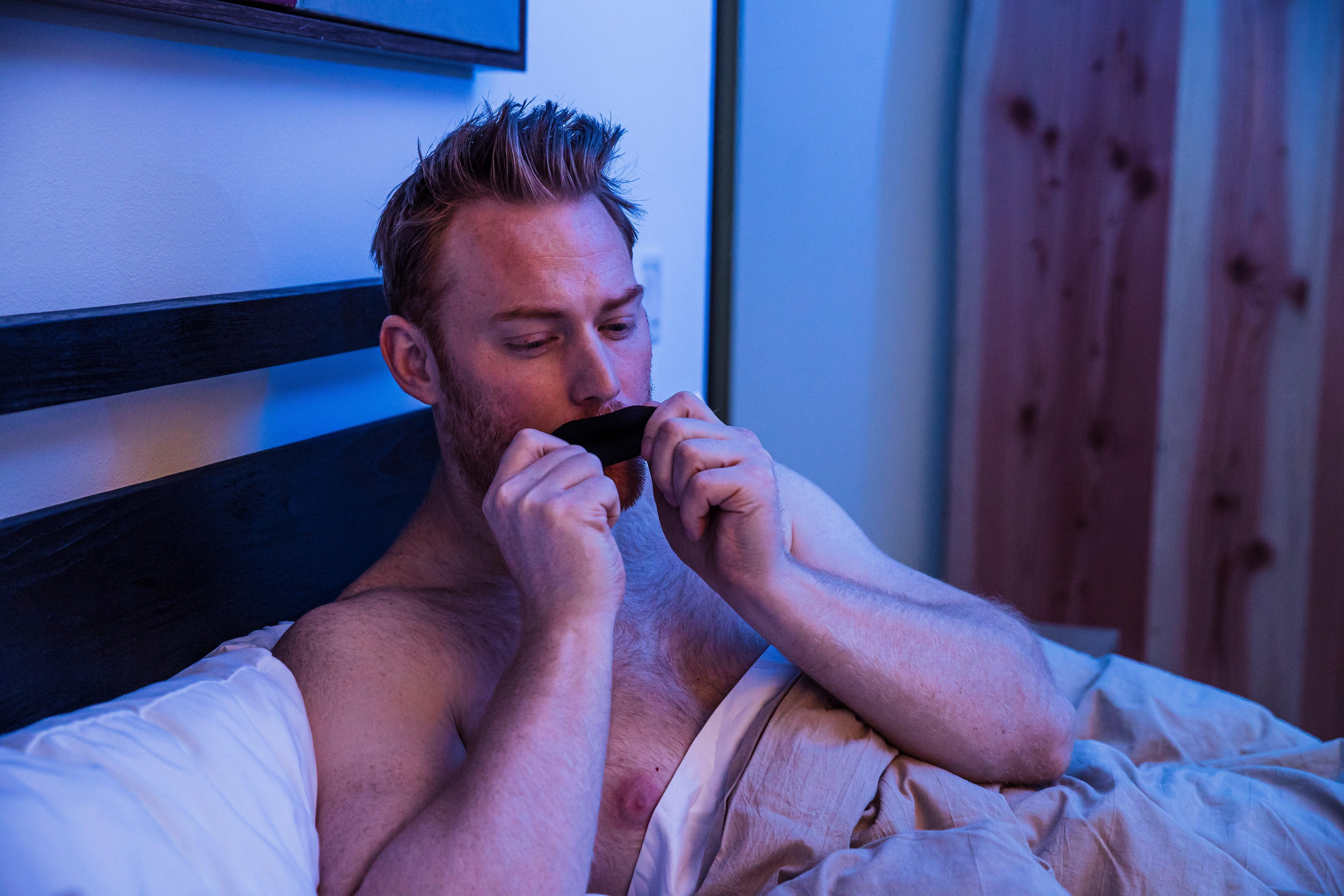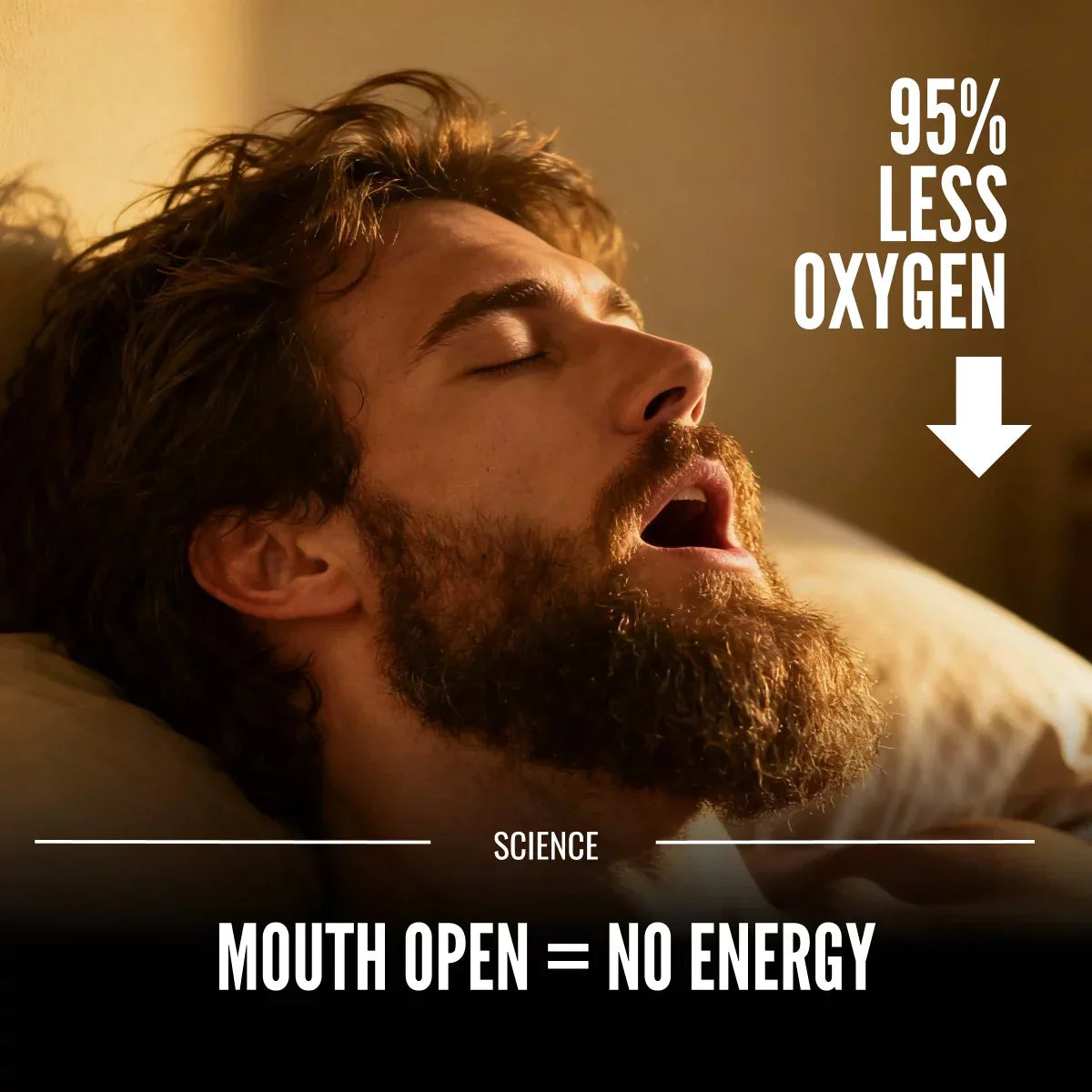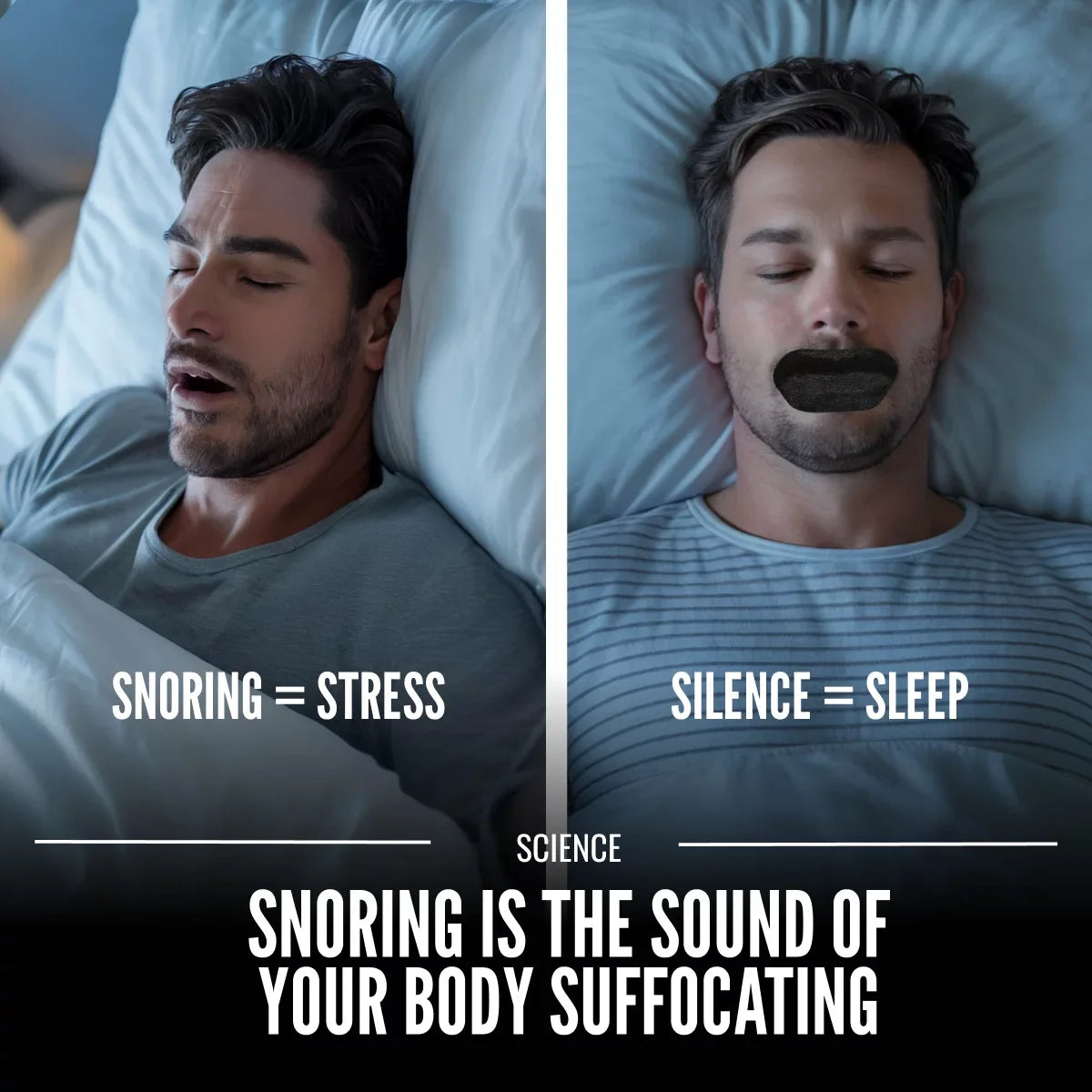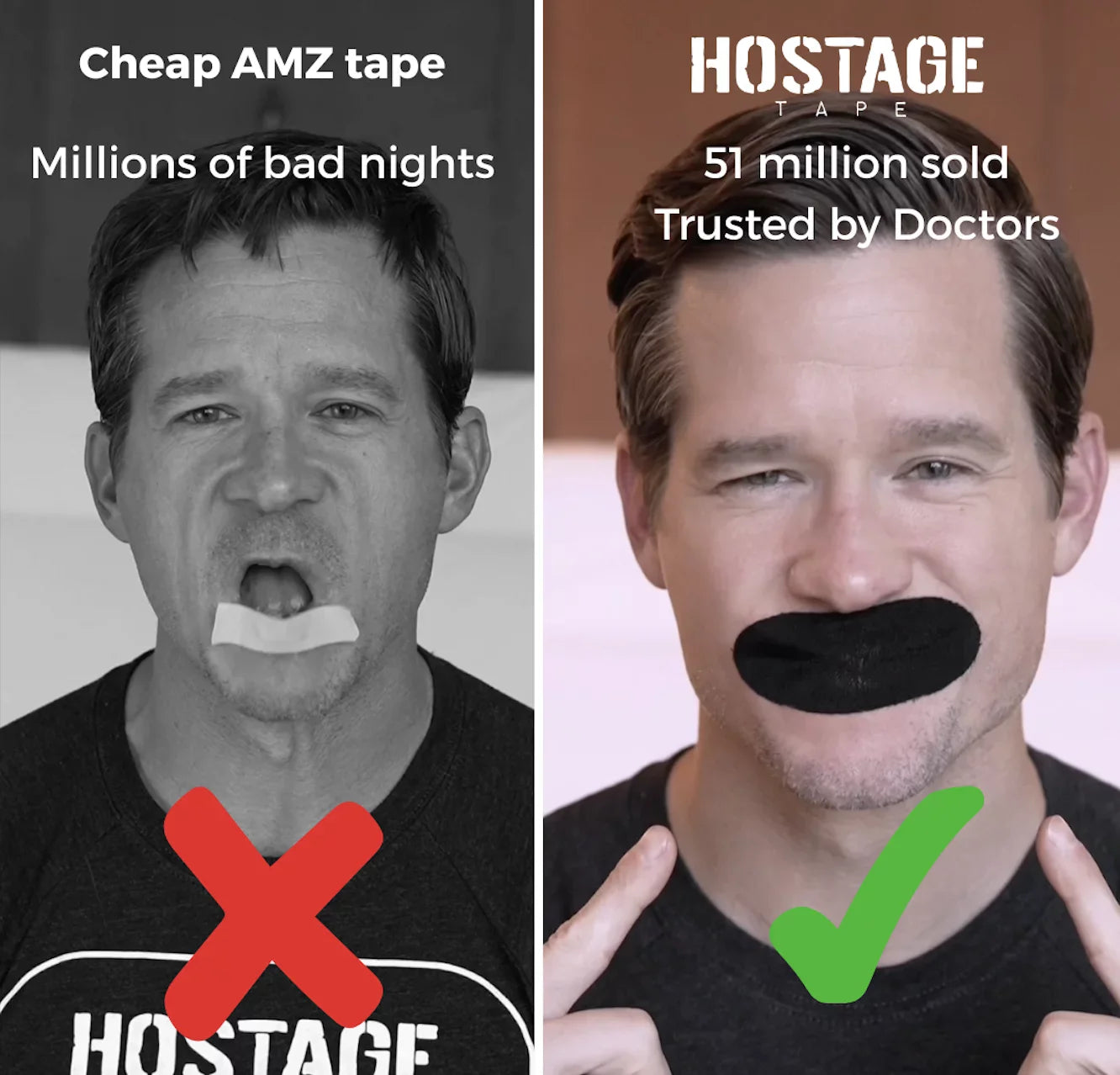Let’s be real. The thought of taping your mouth shut overnight might sound like something out of a thriller where sleep itself is the villain. You’re lying in bed, armed with your trusty Hostage Tape, ready to take back your nights—but a nagging thought creeps in: “Is this safe, or am I auditioning for a sleep experiment gone wrong?”
Relax. We’re here to pull the mask off any misconceptions, give you the facts, and maybe make you laugh a little while we’re at it. Spoiler alert: when done right, mouth taping isn’t just safe—it’s your getaway car from the misery of mouth breathing.
What Is Mouth Taping (and Why Are People Obsessed)?
Mouth taping is exactly what it sounds like—placing a specialized adhesive strip over your lips to keep them sealed while you sleep. The idea? Shut your mouth (literally) so your nose can do the heavy lifting.
Why bother? Because chronic mouth breathing is a health heist in progress. Think snoring that could wake the neighbors, teeth wearing down faster than your patience, and sleep quality that’s as broken as your Netflix binge schedule.
Hostage Tape lets you escape all that, forcing your body to prioritize nasal breathing—the OG of oxygen delivery systems. But, like any powerful tool, it’s important to use it the right way.
The Risks of Mouth Taping
Mouth taping isn’t inherently dangerous, but there are scenarios where it can turn into the sleep equivalent of walking barefoot on Legos.
1. Can’t Breathe? You’re Doing It Wrong.
If your nose feels more clogged than a sink after Thanksgiving dinner, taping your mouth isn’t just uncomfortable—it’s unsafe. Nasal obstructions from allergies, a cold, or a deviated septum can make it harder to get the oxygen you need.
💡 Solution: Always test your nasal breathing first. Can you inhale without sounding like Darth Vader? If not, clear your airways with nasal strips, sprays, or a trip to an ENT.
2. Using the Wrong Tape
Duct tape, scotch tape, or anything you’d find in a junk drawer belongs nowhere near your face. Poor-quality adhesives can irritate your skin, pull off a layer of dignity (and maybe some lip skin), or trigger allergic reactions.
💡 Solution: Use Hostage Tape, designed for comfort, safety, and durability. It’s strong enough to keep even the most stubborn mouth breathers in check but gentle on your skin.
3. The Freak-Out Factor
Let’s not sugarcoat it: slapping tape over your mouth can feel like you’re starring in a hostage situation. If you’re prone to anxiety or claustrophobia, you might find the experience unnerving.
💡 Solution: Start slow. Wear the tape while awake during relaxing activities like reading or binge-watching true crime documentaries. You’ll get used to the sensation before committing to a full night.
4. Ignoring Medical Conditions
If you have sleep apnea or another serious sleep disorder, taping your mouth without professional guidance could exacerbate the issue.
💡 Solution: Talk to your doctor, especially if you use a CPAP machine. Curious about combining mouth taping with CPAP therapy? Check out this guide.
Why Mouth Taping Isn’t as Scary as It Sounds
For the vast majority of people, mouth taping is a game-changer (yeah, we said it). Here’s why it’s worth the leap:
-
Better Oral Health: Mouth breathing dries out your mouth, creating a bacterial playground. Nasal breathing helps prevent cavities, bad breath, and gum disease. Read more about the connection here.
-
Sounder Sleep: Nasal breathing promotes deeper, more restorative sleep by optimizing oxygen intake.
-
A Quieter Bedroom: Say goodbye to snoring that could double as a chainsaw soundtrack.
-
Sharper Looks: Over time, nasal breathing can help improve facial symmetry and even define your jawline. Want the details? Click here.
How to Mouth Tape Like a Boss
-
Do a Nose Test: Make sure you can breathe clearly through your nose before taping.
-
Prep Your Face: Clean and dry your skin to ensure the tape sticks properly.
-
Start with the Best: Hostage Tape is designed for comfort and safety, so you can sleep easy.
-
Monitor the Results: Wake up feeling less groggy and more like a functional human being? You’re doing it right.
FAQ: Can Mouth Taping Be Dangerous?
Q: Is it okay for kids?
A: Generally, no. Children’s breathing issues should be evaluated by a healthcare professional.
Q: Can I tape my mouth if I have allergies?
A: Only if you’ve cleared your nasal passages. Otherwise, it’s a hard pass.
Q: Will mouth taping cure my sleep apnea?
A: Nope. It’s not a cure but can complement CPAP therapy. Learn how mouth taping works with CPAP here.
Don’t Let Mouth Breathing Hold You Hostage
Mouth taping might sound a little extreme, but the benefits are worth the leap. With the right tape (hint: Hostage Tape) and a few precautions, you can transform your nights—and your mornings.
Because here’s the real danger: staying stuck in the same old cycle of bad sleep, health issues, and noisy nights. Isn’t it time you took back control?
Shop Hostage Tape now and escape the grip of mouth breathing once and for all.






Share:
What Is the Best Mouth Tape for Sleep? (With Hostage-Worthy Precision)
Unlocking Better Sleep: The Science Behind Mouth Taping and Hostage Tape